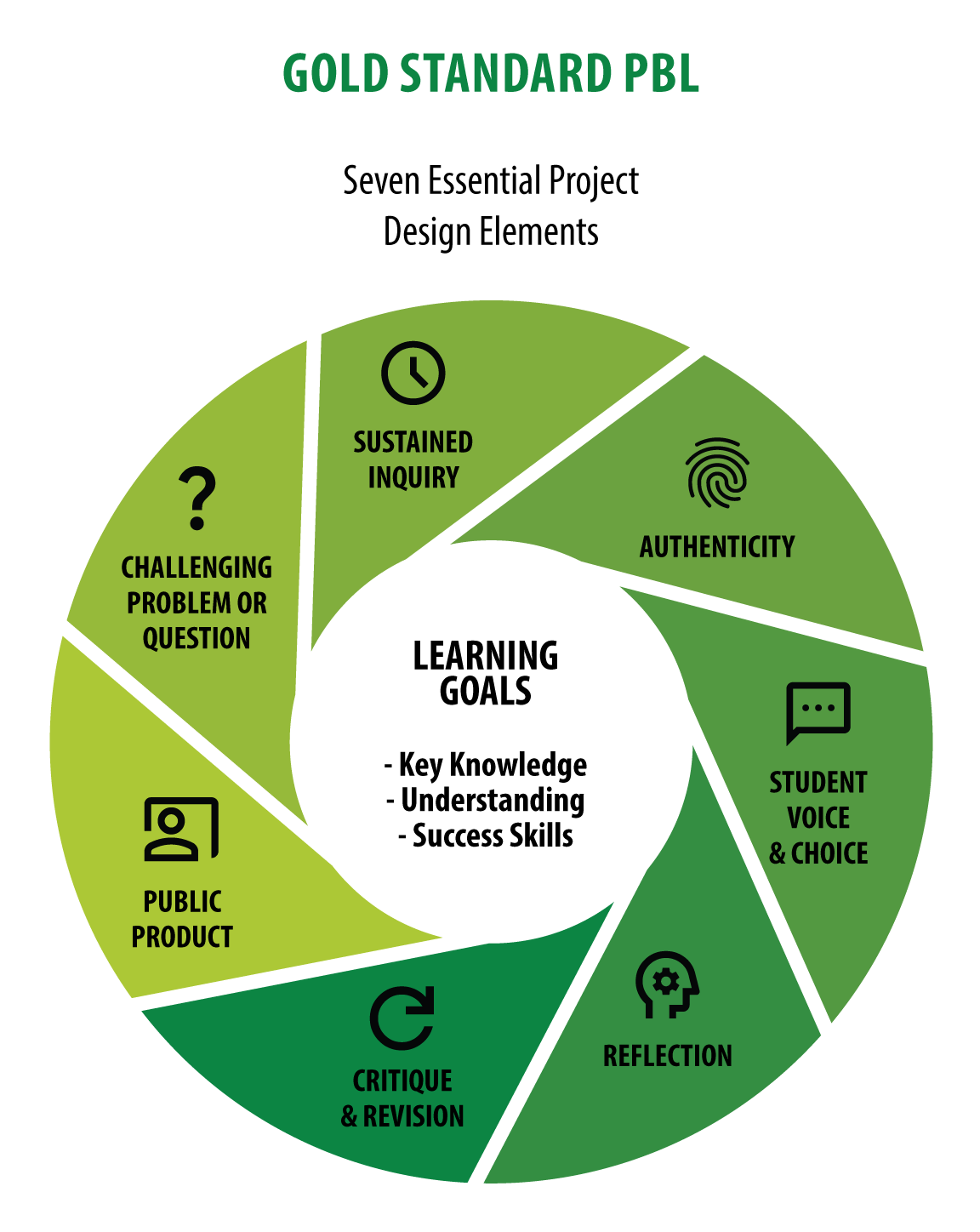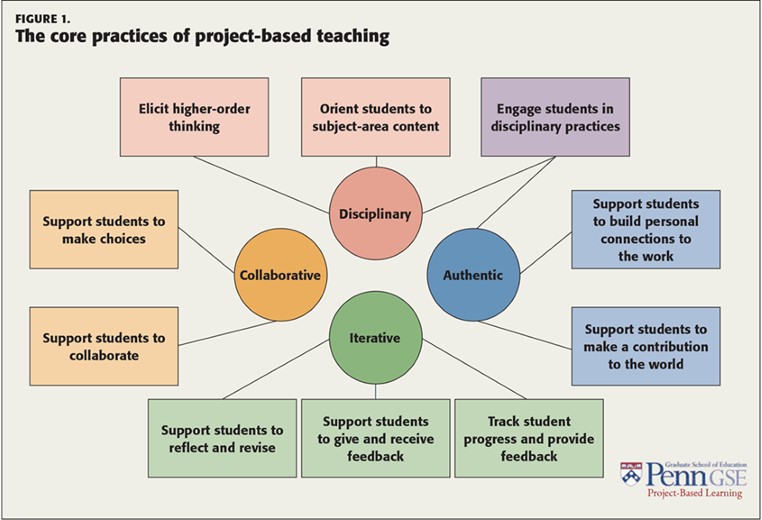Project-Based Learning

What is it?
Project-based learning (PBL) allows students to apply theory in a real-world context. PBL Works, one of the most respected contemporary PBL resources, identifies Project-based
learning as learning in which projects frame the work that students do—the projects
are the vehicles for student learning—and contrasts this approach with other kinds
of “dessert projects,” projects that are a product of the learning rather than a part
of the process. In true PBL, the projects provide students essential opportunities
to try, fail, and to learn throughout the process of doing authentic work.
PBL’s long history began with medical schools that recognized the need for students to find answers and gain skills in the context of actual medical cases. Students learned through case studies that required them to use their growing knowledge in context. This approach is, however, scalable. Project-based work can happen within one class with case studies, within one class with an industry partner who brings in a problem, or across multiple classes that provide a variety of disciplinary perspectives on the problem at hand. In CACS, we do all of this!
PBL’s long history began with medical schools that recognized the need for students to find answers and gain skills in the context of actual medical cases. Students learned through case studies that required them to use their growing knowledge in context. This approach is, however, scalable. Project-based work can happen within one class with case studies, within one class with an industry partner who brings in a problem, or across multiple classes that provide a variety of disciplinary perspectives on the problem at hand. In CACS, we do all of this!

Benefits of PBL
Authentic problems, and a deep dive into sustained inquiry around those problems,
give students a sense of purpose and increase engagement. Being immersed in a problem
or project requires students to utilize critical thinking skills, creative problem-solving
skills, and articulate their own recommendations based on evidence, and these are
precisely the 21st-century skills that employers want. Additionally, when the product can be public—as when external reviewers or project
partners are involved—students develop professional and interpersonal skills that
they simply cannot develop without these connections.
Read more about PBL through these additional resources:
- Buck Institute for Education. (2023). PBL Works.
- Cooper, R., & Murphy, E. (2021). Project Based Learning: Real Questions. Real Answers. How to Unpack PBL and Inquiry.
- Grossman, P., Herrmann, Z., Kavanagh, S.S., & Dean, C.G.P. (2021). Core practices for project-based learning: a guide for teachers and leaders.
- Judson King, C. (2010). The Multidisciplinary Imperative in Higher Education.
- Miller, A. (2022). A Recipe for Interdisciplinary Project-Based Learning.
- Wobbe, K., & Stoddard, E.A. (2019). Project-Based Learning in the First Year.